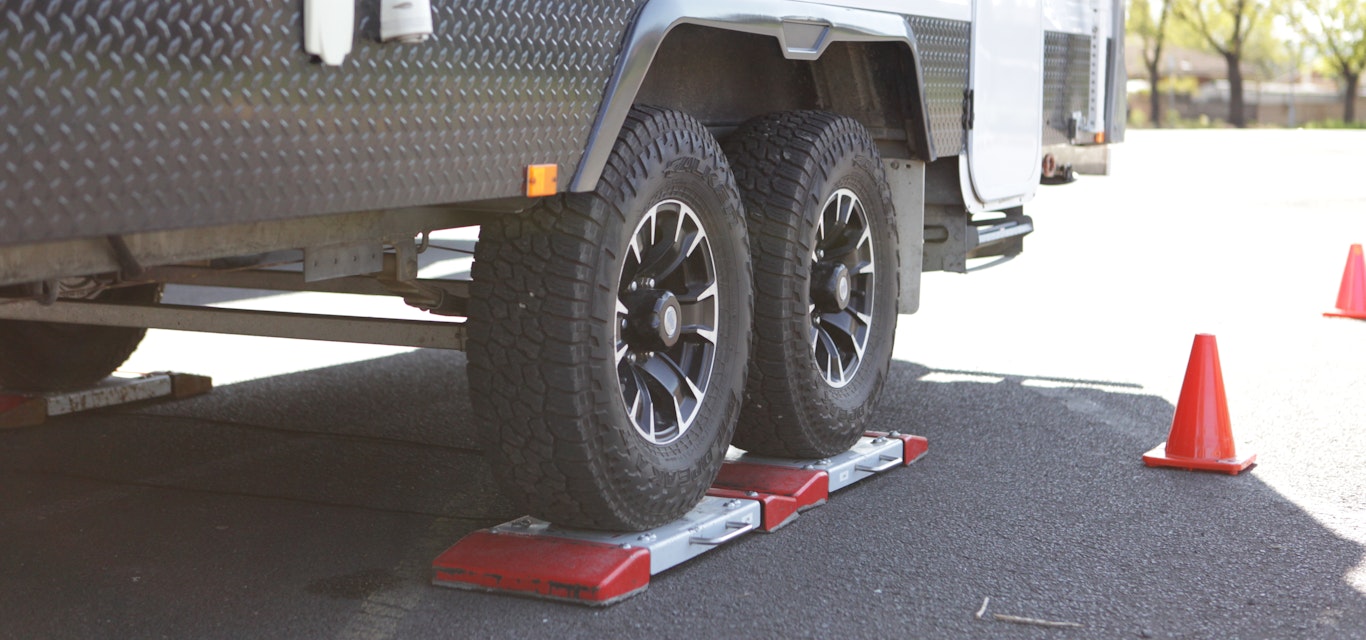Safe towing
It's the Australian dream to pack up the house, hitch up a caravan, and hit the road. Some of us are doing it, and we're seeing so many of you on the road too. Caravan parks across Australia are busier than ever, but how do we know we're all towing and travelling safely when there are so many things to consider?
Weight limits
While your caravan might have lots of free space, it doesn't necessarily mean it can be filled to its capacity. Why? Because your tow vehicle will have a braked towing capacity limit, and your caravan will have a limit on its aggregate trailer mass. It's important to understand these limits, and not exceed them.
Just how much payload can you put in your caravan?
Check your caravan TARE weight, and your aggregated trailer mass (ATM). If you subtract the TARE from the ATM, that will give you the maximum payload for your caravan. Examples of what makes up your payload in your caravan are as follows:
Water in your water tanks
Gas bottles
BBQ
Bikes / scooters
Consumables
Clothing / shoes / toiletries
Diesel heaters
Plates / cutlery / cups / mugs
And anything else that isn't in your caravan when it's completely empty
We advise motorists understand how much payload you have left available, pop your smaller payload items in a bag, and use a handheld luggage scale to weigh each item to keep track of your combined weight.
While your caravan might have an aggregated trailer mass for 3,000kgs, can your towing vehicle actually tow it? Find out your specific vehicle's braked towing capacity here. You might find that your vehicle can only tow 2500kgs, meaning if your caravan ATM is 3000kgs, you have to ensure you don't use that last 500kgs of payload in your caravan.
Did you know your vehicle also has a payload limit, whether it's being used to tow or not? If you've added additions to your vehicle, including bike racks, bull bars and more, this will all reduce the available payload left in your vehicle.
Consider the elements
The weather isn't always on our side. Strong crosswinds when travelling and towing your caravan could mean upwards of 40kgs of extra weight on one side of your caravan, putting it off balance. It's important to understand how to balance the weight evenly in your caravan when loading up, to ensure your caravan has the best opportunity to stay stable on the road.
How can we do this?
Consider what's in your caravan when empty. Do you have all the heavier items on one side? Eg. fridge, kitchenette, cabinets? When considering placement of your payload, try and balance the weight by putting it on the opposite side to existing weight. Keep your weight as balanced as possible.
How do I know my loaded car and caravan is safe?
While some may use a weigh bridge to make sure they're safe, unless you unhitch your caravan from your car and weigh them both separately, you're only going to get the gross trailer or gross combined mass. This won't tell you whether or not your vehicle or caravan is loaded within or beyond their capacities. But this is a good place to start.
Try a Google search to see if there's any mobile vehicle and caravan weighing services near you. These services will mean you can understand not only the ATM of your caravan and GVM of your vehicle, but also the weight distribution in your caravan. This can assist you in making decisions on where to store your heavier payload to help keep you safe.
Towing Aids
There are numerous tow aids that will help keep you that little bit safer on the road. Take a look at anti-sway bars and pin hitches. For example, a rotational pin hitch makes hitching your caravan to your tow car that little bit easier. They also mean that in the unfortunate event your caravan were to roll, a rotational pin hitch will reduce the chances of your car rolling with it. These are optional, but worth looking into.
Enjoy your next adventure, knowing you're travelling safely on the road.
